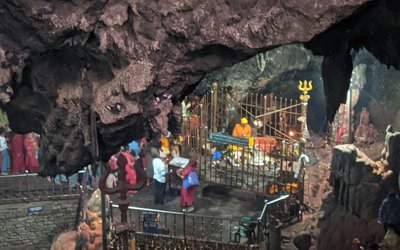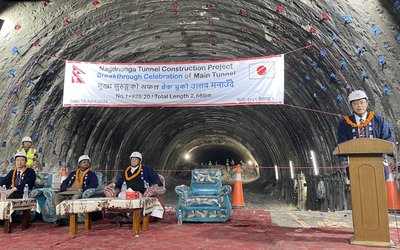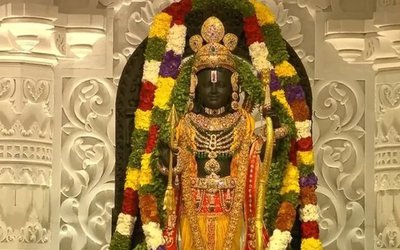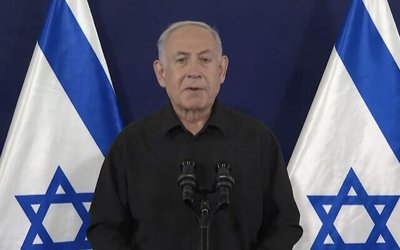On 10 March 2010, two women and a 12-year-old girl were killed by army personnel attached to a patrol of the Jwala Dal Battalion deployed in Bardiya National Park in mid-western Nepal. The army claimed that the victims were armed poachers who had attacked the patrol and that the soldiers had acted in self-defence.
The National Human Rights Commission (NHRC) investigated the case and found that all three victims had been shot from behind. The NHRC concluded that the victims were not armed and were very poor members of the Dalit community who had been collecting bark to sell.
On 27 April 2008, members of the United Communist Party of Nepal (UCPN) abducted Ram Hari Shrestha, a businessman, from his residence at Koteswore in Kathmandu. He was accused of having stolen Rs 1.7 million and a weapon that Maoists had allegedly given him to keep safe. Shrestha was then brought to the People's Liberation Army (PLA) cantonment in Chitwan where he was severely beaten. On 8 May, he succumbed to his injuries and on 25 May, his dead body was recovered from Jugedi, Chitwan on the bank of Trishuli River.
After a complaint was filed by Ramila Shrestha (Ram Hari Shrestha's wife), the Chitwan District Court formally charged five Maoist cadres including Kali Bahadur Kham ‘Vividh’ and Govinda Bahadur Batala. Only one of the five, Batala, was arrested. The four other accused were
declared ‘absconding’ by the police after they did not appear before the court.
Despite having launched an internal probe panel to investigate into Shrestha's killing, the UCPN (Maoist) refused to cooperate with the police. On 24 May 2008, the PLA announced that one of the main accused-- Kali Bahadur Kham-- who was the commander of the PLA Third Division at the time of Shrestha's abduction-- was suspended. Nevertheless, Kham was never handed over to the police and was later promoted in the party hierarchy in January 2009. He is now a Central
Committee Member and the Commander of the PLA Fifth Division.
The National Human Rights Commission, in its report, said the police chief of Chitwan District did not provide them with the information and documents demanded in relation with the case. Kham has also been accused of masterminding the robbery of three Chinese traders in
Kathmandu. On 9 August 2010, the Kathmandu District Court issued an arrest warrant against Kham and ordered the police to produce him before the court within seven days. The Home Minister Bhim Rawal met up with the Maoist Chairman Pushpa Kamal Dahal on 15 July to urge the Maoist party to hand over the accused to the police. But they didn’t oblige.
These are but two incidences of the pathetic situation of human rights in the country. Political leaders as well as human rights activists claimed that rights situation in the country would improve once the direct rule of King Gyanendra comes to an end. But even after the demise of monarchy, the situation remains precarious.
On January 25 this year , some 50 members of the United Nations raised questions regarding human rights situation in Nepal at the 10th session of Universal Periodic Review (UPR) Working Group of the UN Human Rights Council in Geneva. They mainly pointed towards what they
called the situation of impunity in the erstwhile Himalayan kingdom.
Delegations from Denmark, Germany, Hungary, Japan, Netherlands, New Zealand, South Korea and Switzerland, among others, asked the government of Nepal to take concrete steps to end the environment of widespread impunity and bring the guilty to book.
The British delegation recommended that the government of Nepal tackle impunity by creating an independent police commission responsible for all transfers and promotions, in order to end political interference in police duties through the threat of demotion or quick transfer.
The delegations of the Czech Republic, Canada, France and US recommended the government of Nepal specifically safeguard the security of journalists and implement adequate measures for the protection and investigation of crimes against journalists and human rights defenders.
It was only the Cuban delegation that supported the Nepal government saying that that human rights abuse in Nepal was due to the “unfair independent economic order”.
Nepali officials, on their part, maintained that the poor human rights record of the country was due to the difficult transitional phase that the country was passing through. “Nepal is committed towards upholding universal human rights principles and fundamental rights enshrined in the country’s interim constitution,” said deputy prime minister Sujata Koirala, who was leading the Nepali delegation. While defending Nepal Army’s record so far, she assured that the government will take action against human rights violators.
Rights groups say as Nepal is emerging out of the shadow of the decade-old Maoist insurgency, human rights violations and abuses perpetrated by both the state and the rebels during the armed rebellion are yet to be accounted for.
The comprehensive peace accord signed by the then government and Maoist rebels in November 2006 calls for setting up a National Peace and Rehabilitation Commission as well as a high level Truth and Reconciliation Commission to conduct investigation about those who
were involved in gross violation of human rights during the conflict.
After more than four years, none of these commissions has been formed. The whereabouts of over 900 people disappeared during the conflict remains unknown. Worse, dozens of armed groups have sprung up in southern districts of the country, which are carrying out extortion,
kidnap and even murder, forcing the local population to live in a situation of constant fear and threat.
The ousted king Gyanendra succumbed to international pressure and allowed the Office of High Commissioner on Human Rights (OHCHR) to be established in Nepal in 2005. “But the major political parties and the government of Nepal today neither listen to the international concerns
nor domestic criticism ,” said Subodh Raj Pyakurel, chairman of Informal Sector Service Center (INSEC), who was in Geneva to lobby with the international community. “Unless parties improve their behaviour and agree to draft a new constitution during the stipulated time frame, the situation won’t improve.”
As things stand now, both the sustainable peace and new constitution look remote in Nepal, which will have direct bearings on the overall situation of human rights in the country.
- TANAHU HYDROPOWER PROEJCT: A Significant Achievement
- Apr 15, 2024
- AMBASSADOR HANAN GODAR: Sharing Pain With A Nepali Family
- Mar 30, 2024
- VISIT OF KfW AND EIB TO NEPAL : Mission Matters
- Mar 25, 2024
- NEPAL BRITAIN SOCIETY: Pratima Pande's Leadership
- Mar 24, 2024
- NEPAL ARMY DAY: Time To Recall Glory
- Mar 15, 2024
















